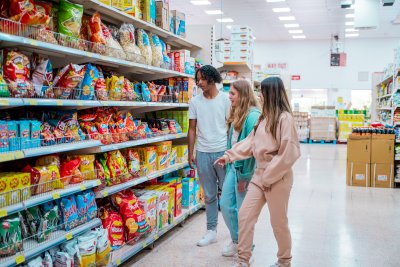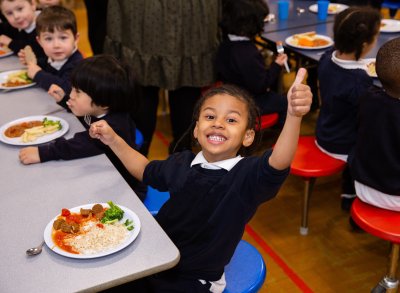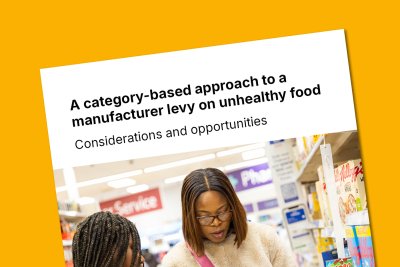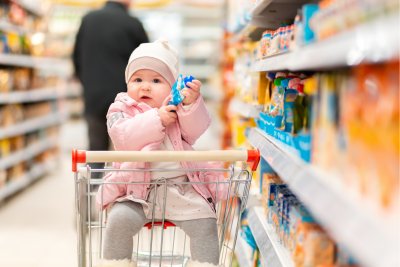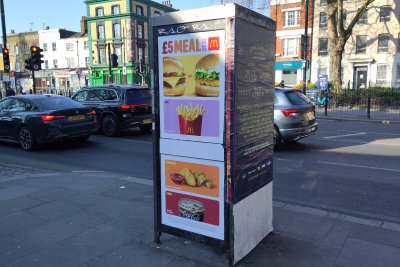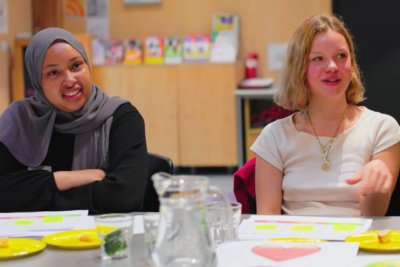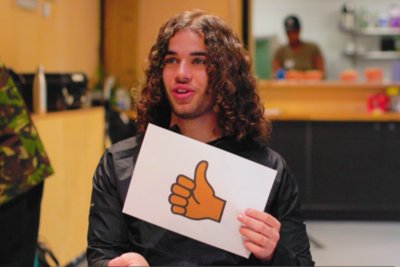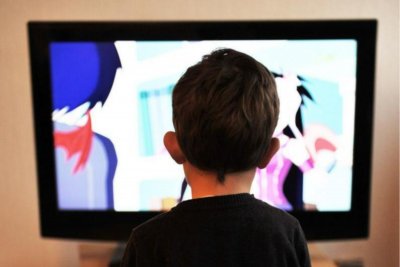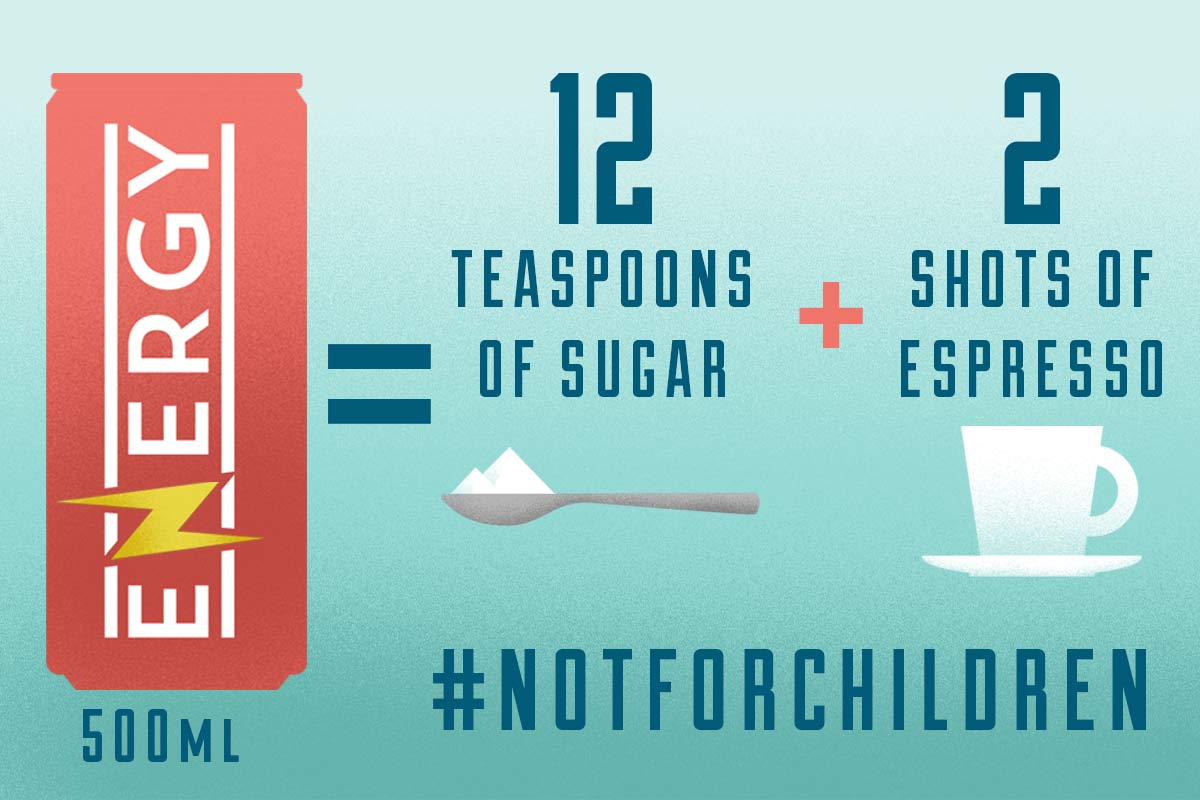 Credit: Jamie Oliver Organisation
Credit: Jamie Oliver Organisation

New survey reveals teachers' backing for government ban on sales of energy drinks to children
New research reveals 97% of teachers have backed proposed restrictions on sales of high caffeine energy drinks to children, as the Children's Food Campaign calls for a ban to be set at age 18, beyond current voluntary supermarket commitments.
The Children's Food Campaign is calling on the government to prohibit the sale of energy drinks to all children under-18 following research with 768 teachers across the UK, which revealed overwhelming support for a ban.
The survey was conducted by members of the Children's Food Campaign as part of building evidence to feed into Government consultations on energy drinks sales to children, taking place as part of Chapter Two of the Childhood Obesity Plan.
Over half the teachers taking part in the survey cited evidence of negative health and behavioural effects on children after consuming energy drinks, often on the way into school in the morning. Many teachers cited problems with students becoming hyperactive, disruptive, having energy slumps or becoming lethargic, struggling to focus and concentrate, complaining of tiredness and lack of sleep, and, in a few extreme cases, heart palpitations requiring attention by doctors.
In extreme cases cited by teachers, where young people had consumed several heavily caffeinated energy drinks, young people experiencing suspected heart palpitations had been referred to doctors.
“Tiredness and lethargy, sugar highs and poor behaviour. We’ve had a pupil that had to go to the doctor due to heart palpitations - he was drinking four a day and doctors explained that the drinks were damaging his health.” (Key Stage 3 & 4 teacher, London)
Two thirds of the teachers (64%) said whilst their schools neither sold nor allowed the consumption of the drinks on site, young people still buy and consume them on their way to and from school, and smuggle them in in their schoolbags, which is why they still want to see sales to children prohibited.
“Even though they are banned, students still drink them; often on the way to school - they arrive hyper/ 'wired' which causes behavioural issues but with any 'high' there's a comedown... if students don't top up at break or lunch, those that drink these drinks daily, become angry/ behave erratically to the point you cannot even reason with them (especially in KS3&4)” (Secondary school teacher, South East)
51% of the 532 teachers working specifically with students aged 11-18, who are the largest consumers of energy drinks, would like the government to introduce a ban for all under-18s, as this would support whole school approaches and send the clearest message to all young people and their parents aligned with tobacco and alcohol restrictions, rather than older school pupils still being able to purchase them on their way to school. 47% support a government ban at under-16.
“Children do not need access to this drink and a ban at age 16 is very hard to implement because ID isn’t needed at 16 so my bigger, older looking kids are still able to buy it” (Key Stage 3 & 4 Teacher, East Midlands)
These are not suitable for sale to children and a child is under 18 (Key Stage 3 & 4 Teacher, West Midlands)
Responding to the findings, Barbara Crowther of the Children’s Food Campaign says,
“These high caffeine fizzy drinks are not energising pupils in the classroom, it’s actually the opposite, and hard-working teachers have a tough enough job without having to manage their health and behavioural effects.
There’s a very clear case now for government to back what teachers are asking for and take action. It’s made easier because most major supermarkets have already adopted a voluntary ban to stop selling under-16s, but young people are still buying them from corner shops on the way to school.
We are calling on the government to ban all sales to under-18s, which will send the clearest message out that these drinks – as it already says on the label – are just not suitable for children.”
The Children's Food Campaign is now calling on the government to consider introducing a ban on the sales of energy drinks to all children up to 18, similar to the restrictions already in place on tobacco and alcohol. 16 and 17 year olds are amongst the heaviest consumers of energy drinks, and setting a ban at 18 would support teachers to operate more effective whole school policies.
The full response from the Children's Food Campaign to the Government Consultation on the sale of energy drinks to children will be published on Wednesday 21 November.
* Member organisations who supported the Children's Food Campaign research with teachers included: the Food Teachers Centre, School Food Matters, RACA Adopt a School Trust, Health Education Trust, Soil Association Food For Life, Hyper Active Children's Support Group and Sugarwise.
Children's Food Campaign: Campaigning for policy changes so that all children can easily eat sustainable and healthy food.
Sustain
The Green House
244-254 Cambridge Heath Road
London E2 9DA
020 3559 6777
sustain@sustainweb.org
Sustain advocates food and agriculture policies and practices that enhance the health and welfare of people and animals, improve the working and living environment, promote equity and enrich society and culture.
© Sustain 2025
Registered charity (no. 1018643)
Data privacy & cookies
Icons by Icons8
